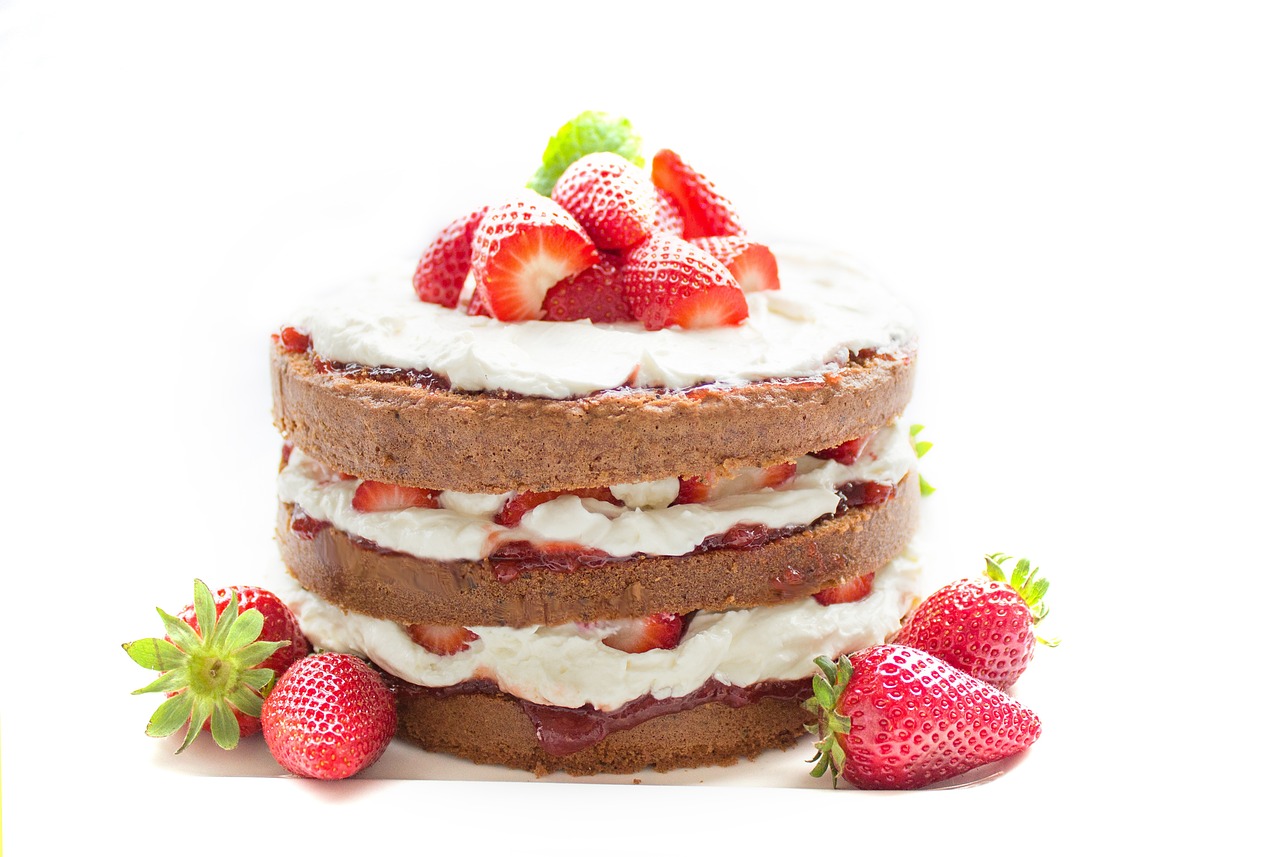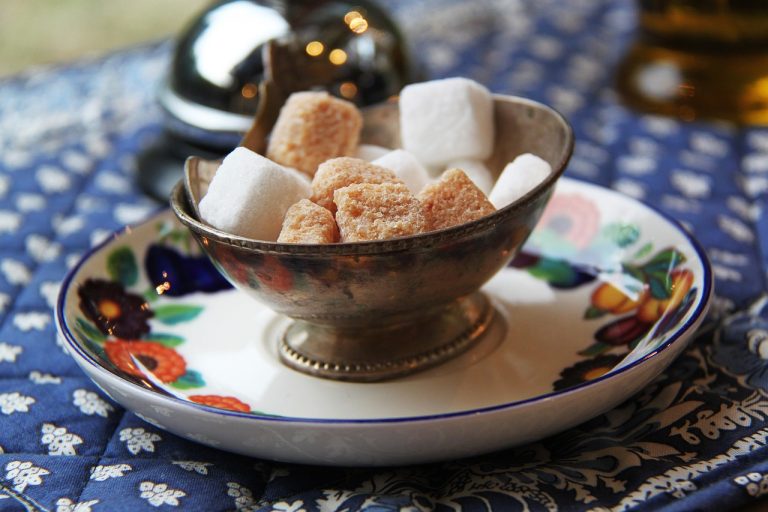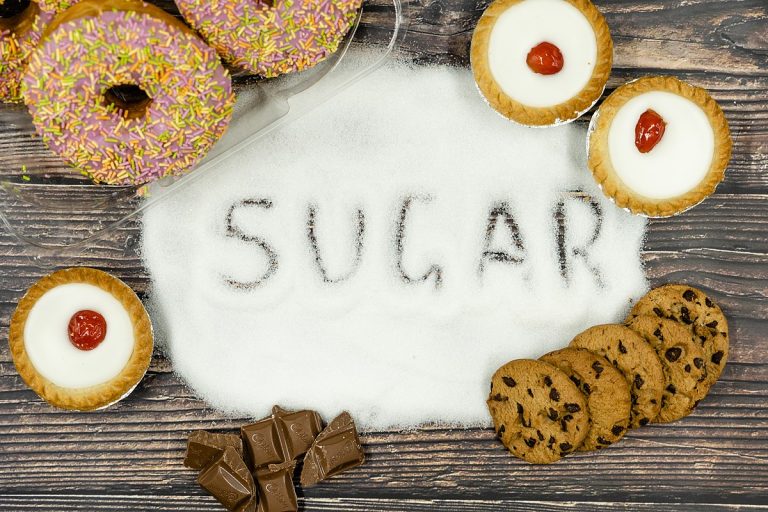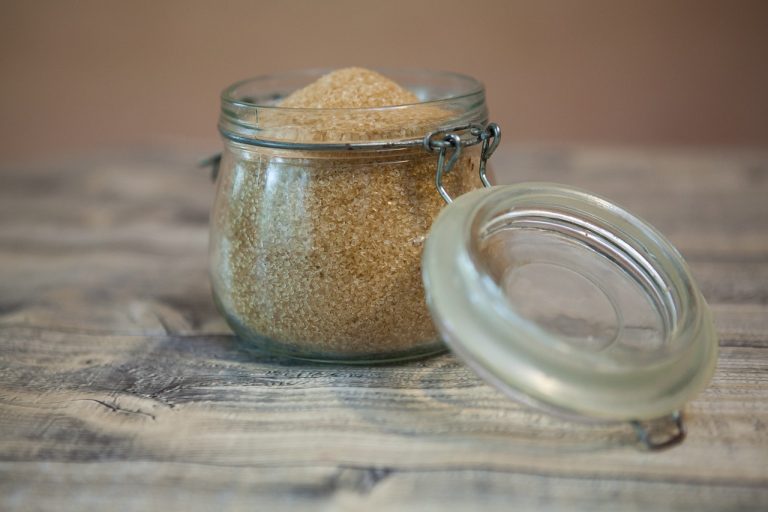Is Sucralose Low FODMAP? Is This Sweetener IBS-Friendly?
If you’re following a low FODMAP diet, you may be wondering – is sucralose low FODMAP and a suitable sweetener for you?
Sucralose is an artificial sweetener that is commonly used in low-calorie or sugar-free products, such as diet sodas, chewing gum, and baked goods. It’s also known by the brand name Splenda. While it’s considered safe for consumption, you may be unsure whether it’s low FODMAP.
Good news: sucralose is indeed a suitable low FODMAP option. It is not broken down and absorbed by the body which makes it a low-calorie sweetener.
In this guide, we’ll explore the FODMAP content of sucralose and whether it’s suitable for a low FODMAP diet.
Is Sucralose Low FODMAP?
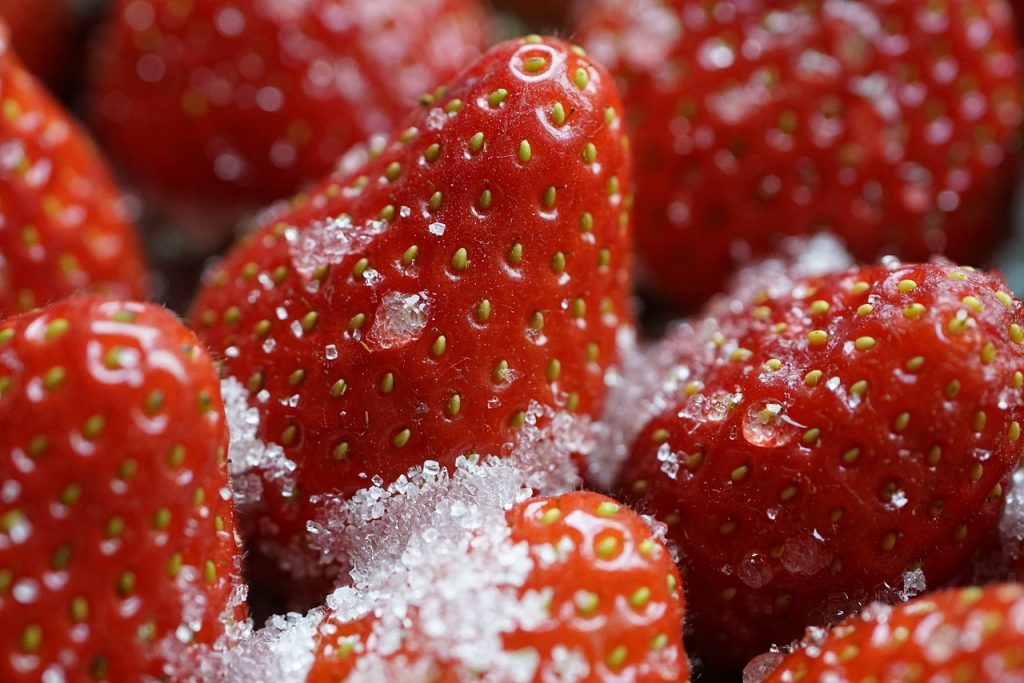
The good news is that sucralose is considered low FODMAP, which means it is safe to consume in moderation while following a low FODMAP diet.
However, although sucralose is low FODMAP, it’s important to note that some low FODMAP foods and drinks may still contain other high FODMAP ingredients. For example, some low FODMAP protein bars or drinks may contain other sweeteners like fructose or honey, which are high FODMAP. Always check the ingredients list and the serving size before consuming any food or drink while following a low FODMAP diet.
What is Sucralose?
Sucralose is a low-calorie artificial sweetener that is commonly used as a sugar substitute. It is made by modifying sugar molecules to create a new compound that is much sweeter than sugar but with fewer calories. Sucralose is about 600 times sweeter than sugar, which means that only a tiny amount is needed to achieve the same level of sweetness as sugar.
Sucralose is often used in a wide variety of foods and beverages, including soft drinks, chewing gum, baked goods, and dairy products. It is also commonly used in tabletop sweeteners, such as Splenda.
Related: Is Black Pepper Low FODMAP
Sucralose and IBS
Sucralose is considered safe for consumption by most people, including those with irritable bowel syndrome (IBS). However, some people may experience adverse effects from consuming sucralose, such as digestive issues or headaches. If you experience any negative side effects from consuming sucralose, you should stop using it and consult with your doctor.
Research studies have shown that the consumption of sucralose does not result in any adverse gastrointestinal symptoms in individuals with IBS. In fact, a study conducted by Biesiekierski et al. (2011) found that the consumption of sucralose did not result in any significant increase in gastrointestinal symptoms in individuals with IBS.
Nutrition in Sucralose
Here is a nutrition table that shows the nutritional information for one serving of sucralose:
| Nutrient | Amount per serving |
|---|---|
| Calories | 0 |
| Total fat | 0g |
| Sodium | 0mg |
| Total Carbohydrate | 0g |
| Sugars | 0g |
| Protein | 0g |
Additionally, here is a table that shows the glucose, fructose, and excess fructose content per serving suggestion of some common low FODMAP fruits:
| Fruit | Glucose (g) | Fructose (g) | Excess Fructose (g) |
|---|---|---|---|
| Blueberries (1/4 cup) | 2.5 | 1.6 | 0.1 |
| Grapes (10 medium) | 7.2 | 4.8 | 0.2 |
| Pineapple (1/2 cup) | 4.4 | 3.7 | 0.8 |
| Clementines (1 small) | 1.5 | 1.5 | 0 |
Remember, while sucralose is low FODMAP, it’s important to check the ingredients list and serving size of any food or drink before consuming it while following a low FODMAP diet.
Scientific Studies on Sucralose and FODMAPs
Sucralose is mostly considered safe for consumption and has been approved by regulatory agencies such as the FDA, EFSA, and Health Canada.
Sucralose and Gut pH
Several scientific studies have investigated the effects of sucralose on FODMAPs. One study conducted on mice found that sucralose consumption led to an increase in gut pH, which is associated with changes in the gut microbiota. However, this study was conducted on mice and may not be applicable to humans.
Sucralose and Blood Sugar Regulation
Another study investigated the effects of sucralose on blood sugar regulation and insulin resistance. The study found that sucralose consumption was associated with adverse blood sugar regulation and insulin resistance. However, this study did not investigate the effects of sucralose on FODMAPs.
Despite these studies, there is no evidence to suggest that sucralose is high in FODMAPs. In fact, the Monash University Low FODMAP Diet App lists sucralose as a low FODMAP sweetener. This means that sucralose is safe to consume on a low FODMAP diet.
Potential Side Effects of Sucralose
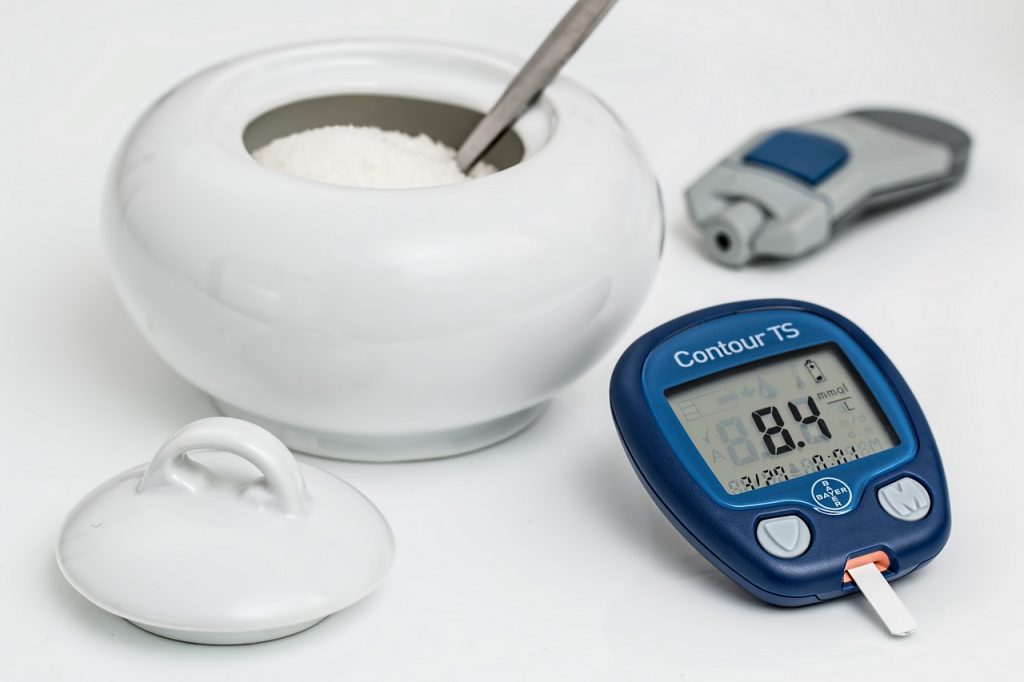
Sucralose is a zero-calorie artificial sweetener that is commonly used as a sugar substitute in many food and beverage products. While it is generally considered safe for consumption, some people may experience side effects after consuming sucralose.
Here are some potential side effects of consuming sucralose:
Gastrointestinal Issues
Sucralose has been shown to have an impact on gut health, which can lead to gastrointestinal issues such as bloating, gas, and diarrhea. Some studies have suggested that sucralose can negatively affect the gut microbiome, which is the collection of microorganisms that live in your digestive tract and play an important role in your overall health.
Headaches
Some people have reported experiencing headaches after consuming sucralose. While the exact cause of these headaches is not fully understood, it is thought that they may be related to changes in brain chemistry that occur after consuming the artificial sweetener.
Allergic Reactions
In rare cases, people may experience an allergic reaction after consuming sucralose. Symptoms of an allergic reaction can include hives, itching, swelling, and difficulty breathing. If you experience any of these symptoms after consuming sucralose, seek medical attention immediately.
Blood Sugar Issues
While sucralose is generally considered safe for people with diabetes, some studies have suggested that it may have an impact on blood sugar levels. Specifically, consuming sucralose may cause a spike in insulin levels, which can lead to a drop in blood sugar levels.
Overall, sucralose is considered safe for consumption by most people. However, if you experience any of the side effects listed above after consuming sucralose, you may want to limit your intake or avoid it altogether. As always, it’s important to talk to your doctor or a registered dietitian if you have any concerns about your diet or health.
Alternatives to Sucralose for Low FODMAP Diets
Using low-calorie, low FODMAP artificial sweeteners can prevent digestive issues in those with irritable bowel syndrome (IBS). If you are looking for alternatives to sucralose for your low-FODMAP diet, here are some options:
Natural Sweeteners
- Stevia: Stevia is a natural sweetener that is extracted from the leaves of the Stevia rebaudiana plant. It is low in calories and does not affect blood sugar levels. Stevia is a good alternative to sucralose for those who prefer natural sweeteners.
- Maple Syrup: Maple syrup is a natural sweetener that is low in FODMAPs and can be used in moderation on a low FODMAP diet. It is a good alternative to sucralose for those who prefer natural sweeteners with a distinct flavor.
- Honey: Honey is a natural sweetener that is low in FODMAPs and can be used in moderation on a low FODMAP diet. It is a good alternative to sucralose for those who prefer natural sweeteners with a distinct flavor.
- Monk Fruit Sweetener – Learn about them here!
Artificial Sweeteners
- Aspartame: Aspartame is a low calorie artificial sweetener that is commonly used in many processed foods and beverages. It is low in FODMAPs and can be used in moderation on a low FODMAP diet. However, some people may experience digestive issues with aspartame, so it is important to listen to your body and consume it in moderation.
- Saccharin: Saccharin is a low calorie artificial sweetener that is commonly used in many processed foods and beverages. It is low in FODMAPs and can be used in moderation on a low FODMAP diet. However, some people may experience digestive issues with saccharin, so it is important to listen to your body and consume it in moderation.
Remember, when choosing sweeteners for your low FODMAP diet, it is important to read labels carefully and choose products that are low in FODMAPs. It is also important to consume sweeteners in moderation and listen to your body to determine which sweeteners work best for you.
Conclusion
In conclusion, sucralose is a low FODMAP sweetener that can be safely consumed by individuals with IBS who follow a low FODMAP diet. Sucralose is a zero-calorie sweetener that is derived from sugar and is approximately 600 times sweeter than table sugar. It is commonly used in a variety of food and beverage products as a sugar substitute due to its sweet taste and low calorie content.
Furthermore, the Monash University Low FODMAP Diet App lists sucralose as a low FODMAP sweetener that can be safely consumed in small amounts. The app recommends consuming no more than 3 packets of artificial sweeteners per day, which includes sucralose, to avoid potential adverse effects.
Overall, if you have IBS and are following a low FODMAP diet, you can safely consume sucralose in small amounts as a sugar substitute. However, it is always important to consult with a healthcare professional or a registered dietitian before making any significant changes to your diet.
Frequently Asked Questions
Which sweeteners are considered low FODMAP?
According to the Monash University Low FODMAP Diet app, sucralose is considered low FODMAP in amounts of up to 1.5 grams per serving. This means that you can consume foods and beverages that contain sucralose in small amounts while following a low FODMAP diet.
Other sweeteners that are considered low FODMAP include aspartame, acesulfame-K, and stevia. These sweeteners can be used as sugar substitutes in small amounts while following a low FODMAP diet.

Jane Porter is an architect that like many others, had her life significantly impacted by digestive problems for many year. Trying to find a solution to her digestive problem, she came across the low FODMAP diet, a scientifically-backed approach designed to alleviate symptoms associated with irritable bowel syndrome (IBS) and other digestive disorders.

